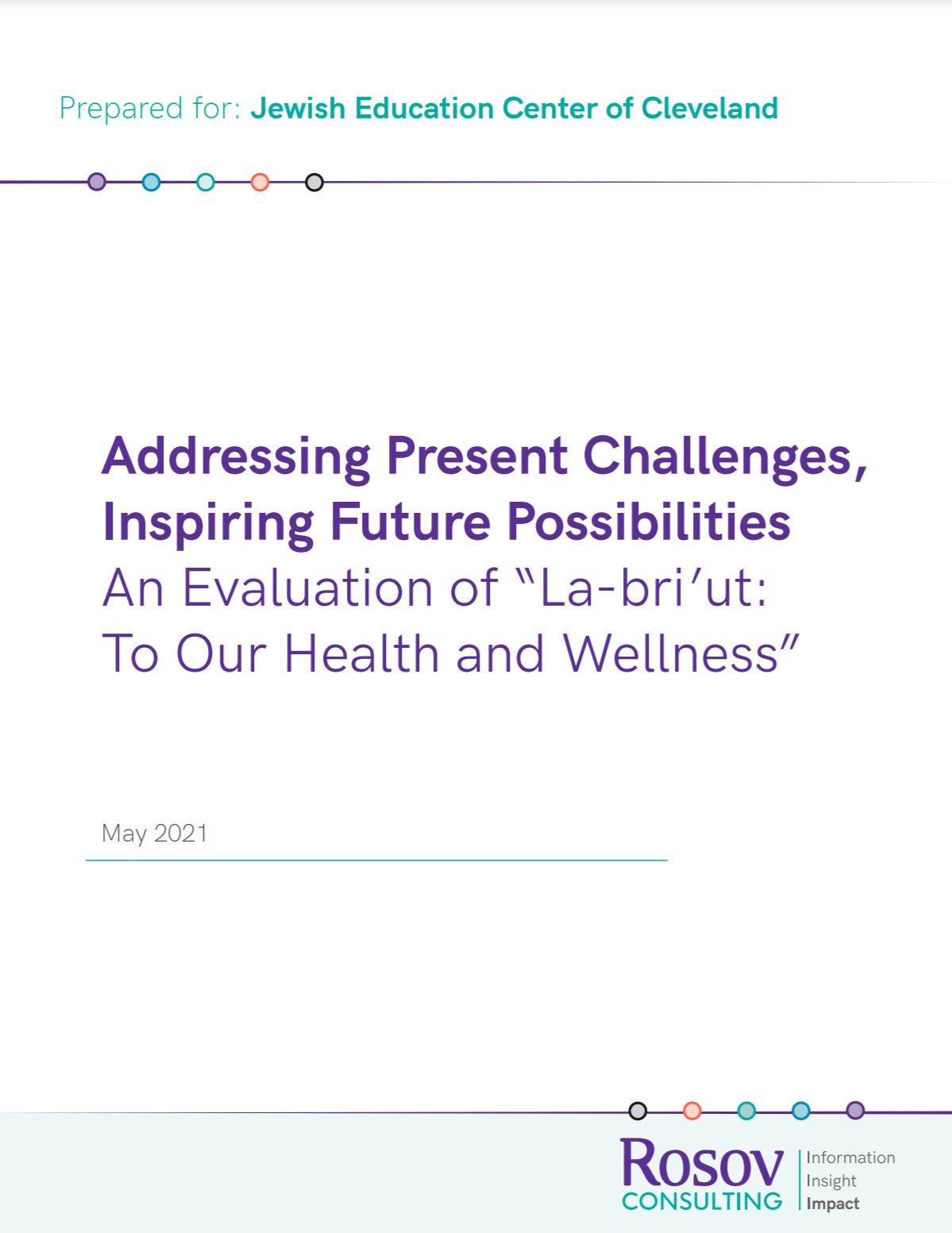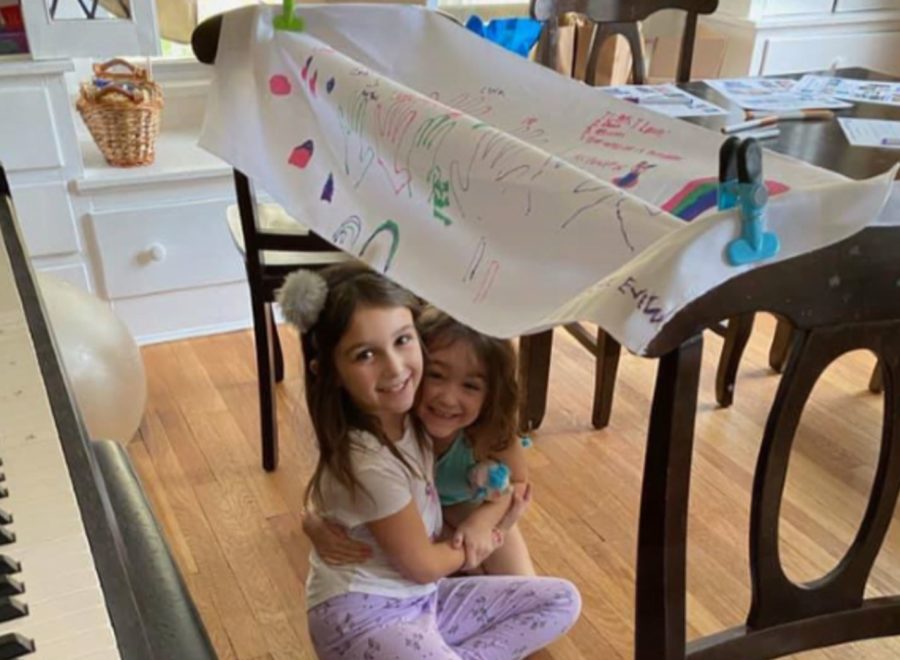Challenge
In late spring 2020, Jewish educational programs needed to radically change their assumptions about the content, location, and delivery of learning. The Jewish Education Center of Cleveland (JEC) saw that, locally and across the country, educational directors were preparing to spend their summers developing new curriculum, still not knowing if learning could be in person or would need to be virtual. Nachama Skolnik Moskowitz, then Senior Director of Curriculum Resources at the JEC, convened a team of educators to create a learning approach that addressed the needs of learners, teachers, families and education directors. Funding for the curriculum development was provided by the Covenant Foundation, the Jewish Federation of Cleveland’s COVID Emergency Campaign, and the JEC.
Through a mix of weekly cohort-based synchronous learning and individual home-based activities (designed to be completed mostly independently by students of all ages), La-bri’ut aimed to help learners navigate the challenges of the pandemic by developing skills and offering tools to build resiliency and strengthen emotional wellness, in dialog with Jewish tradition. Through five values-focused modules, learners gained a variety of tools that build resiliency and supportive strategies for better managing the challenges that life can throw their way, such as the COVID-19 pandemic. In the 2020–2021 school year, La-bri’ut was implemented throughout Cleveland and in over 200 congregations nationally.
The JEC was interested in knowing how parents, educators, and program directors felt about and experienced La-bri’ut, as well as how their experience compared to that of previous curriculum, with a focus on how learnings from La-bri’ut could influence future Jewish education. They engaged Rosov Consulting to gather this information quickly, compare responses to how people felt about previous curriculum, and gain learnings from La’Briut that can influence future Jewish education planning and curricula.
Approach
Rosov Consulting worked closely with the JEC to develop a mixed methods approach to learn both how Clevelanders and others around the country experienced the program. This approach included surveying parents and interviewing teachers and education directors. The parent surveys posed questions exploring Jewish learning as a tool to help children build resiliency and work through issues in their lives. Was Jewish learning able, and to what degree, support and strengthen students’ health and wellness?
Rosov Consulting also interviewed education directors, with conversations centered around key questions such as: What were the motivations for taking on the program and what was it like implementing it? What worked best about the program and what needed improvement? What impact did they see the program creating among students? The scale of the evaluation reflected a mindset of “thinking locally and acting globally.”
Since La-bri’ut was designed as a one-year curriculum, the JEC knew that the program would not be recreated in the future in its exact form. Lessons learned, however, could be used to design more meaningful congregational education in Cleveland and beyond. Because supplementary Jewish education programs would start future planning in the spring, the evaluation of La-bri’ut occurred before the program was even complete; families and students had experienced just a few of the units. The JEC also knew that the process of evaluation was a way for parents and educators to internalize that La’briut was something different—a new way to educate students.
Results

The evaluation showed that La-bri’ut provided a highly positive and meaningful Jewish learning experience for both learners and educators:
- Most parents were deeply appreciative that the JEC had given students the opportunity to remain engaged with Jewish learning and their congregational communities.
- A majority of respondents felt that La-bri’ut’s values-based content was relevant and age appropriate, and that it helped their children build resilience and address the challenges of a difficult year.
- A number of parents described how La-bri’ut’s concepts and projects helped their children explore, express, and manage their emotions.
- More than 6 in 10 Cleveland parents who responded to the survey would like to see their children’s future Jewish learning continue to focus on Jewish values and social–emotional needs in a Jewish context, and nearly half say that spiritual growth and personal learning interests should be prioritized.
- Education directors and teachers across the country who implemented La-bri’ut shared similarly positive reflections regarding the impacts of the values-based and social–emotional focus, and a number described how they could imagine incorporating such content into future programs and/or continuing to experiment with blended virtual and in-person learning modalities.
These findings reflect a dramatic change from the way congregational schools have typically functioned. Families and students specifically found resonance using Jewish text and learning to support wellness.
46 percent of parents in Cleveland and 40 percent of parents nationally said that the La-br’iut educational experience was at least as good as or better than their children’s pre-pandemic education. This finding, which the JEC recognized was a reflection as well on perceptions of congregations’ previous in-person educational offerings, created a sense of urgency for the JEC to share the curriculum with others and begin to plan for new ways to approach part-time Jewish education moving forward. At the same time, the JEC recognized the unique pandemic circumstance that parents were more engaged in their children’s learning because it occurred at home. Many parents were able to share stories about how their children brought the values and concepts they learned about into their everyday lives. The JEC hopes there will be broader lessons learned about parent engagement in their children’s Jewish learning regardless of whether the learning is in person or virtual.
Today, with learning back in person in Cleveland and elsewhere, the JEC is utilizing many curricular elements of La-br’iut so that Jewish learning continues to support students’ health and wellness. Students can “become” in dialogue with Jewish tradition in meaningful ways. The JEC is taking this and other learnings as it designs and delivers other innovative content and approaches to meets the needs of Jewish learners in 2021 and the decades to follow.


